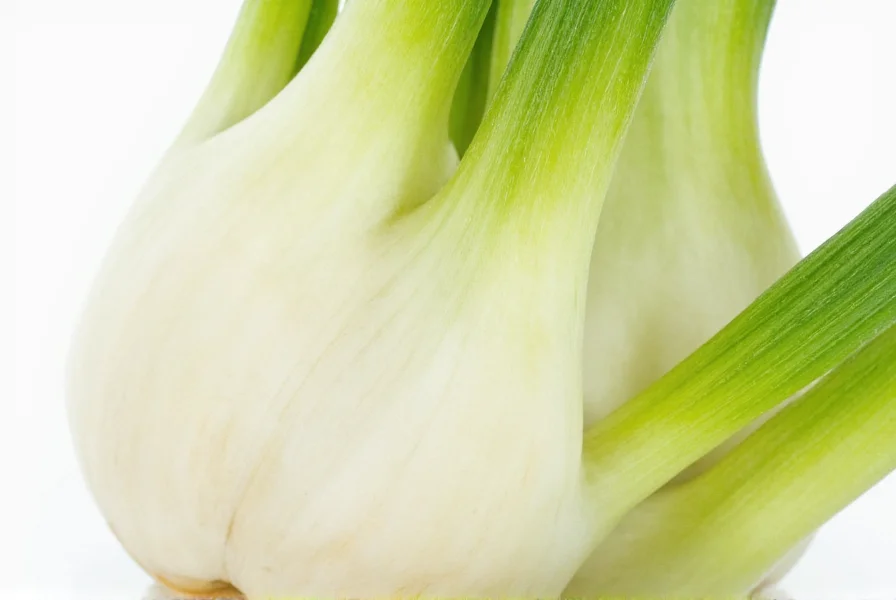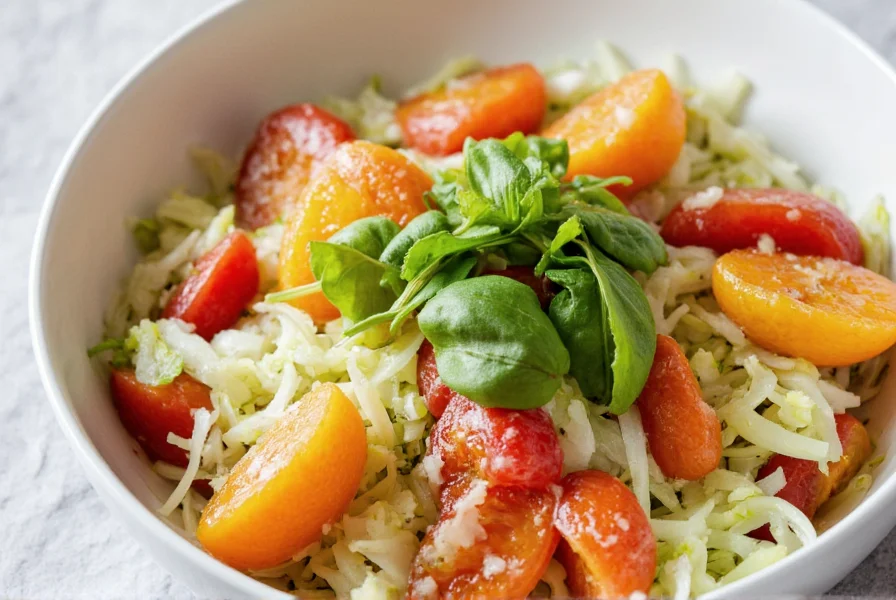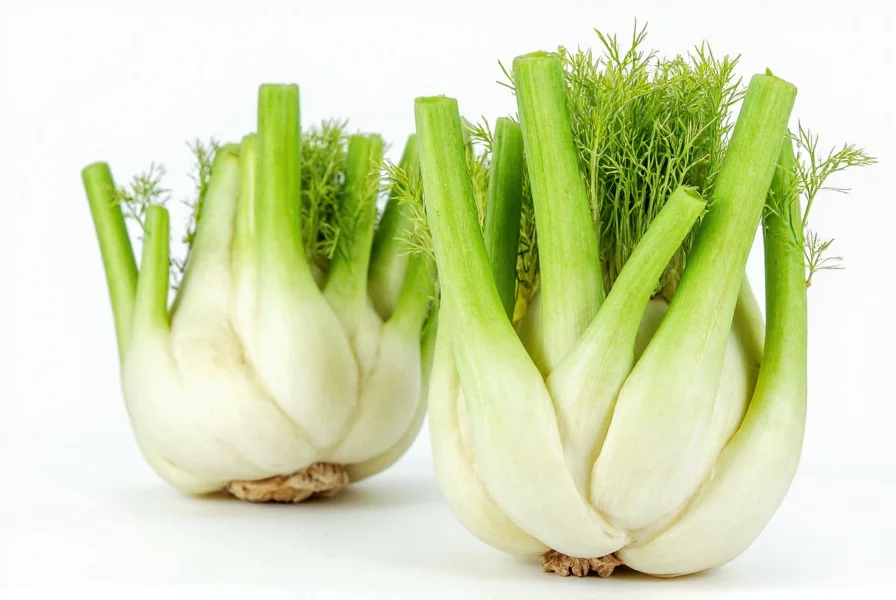Fennel bulb, with its distinctive anise-like flavor and crisp texture, stands out as a nutritional powerhouse among vegetables. This versatile ingredient isn't just a culinary delight—it delivers substantial health benefits through its impressive nutrient profile. Understanding the complete nutritional value of fennel bulb helps health-conscious eaters make informed dietary choices and maximize the health-promoting potential of this often-underutilized vegetable.
Nutritional Composition of Fennel Bulb
When evaluating the nutritional benefits of fennel bulb, it's essential to examine its complete composition. Unlike many vegetables that excel in just one or two nutrient categories, fennel offers a well-rounded nutritional package that supports multiple aspects of health. The bulb's high water content (92.6%) makes it exceptionally hydrating while delivering concentrated nutrition without excess calories.
| Nutrient | Amount per 100g | % Daily Value |
|---|---|---|
| Calories | 31 kcal | 2% |
| Carbohydrates | 7.3g | 2% |
| Dietary Fiber | 3.1g | 11% |
| Vitamin C | 12mg | 20% |
| Vitamin K | 43.4mcg | 36% |
| Potassium | 494mg | 14% |
| Folate | 16mcg | 4% |
| Manganese | 0.35mg | 15% |
Key Nutrients and Their Health Implications
The fennel bulb nutrition facts per 100g reveal several standout nutrients that contribute significantly to health. Vitamin K content deserves special attention—providing 36% of the daily requirement in just one serving, it supports not only blood clotting but also bone metabolism and cardiovascular health. This makes fennel bulb an excellent addition for those seeking natural ways to support bone density and heart health.
Dietary fiber represents another nutritional highlight, with 3.1g per 100g serving. This substantial fiber content explains why fennel bulb is good for digestion and helps maintain stable blood sugar levels. The fiber works synergistically with fennel's natural compounds to promote healthy gut bacteria and regular bowel movements.
Vitamin C, while not as concentrated as in citrus fruits, still provides a meaningful 20% of daily requirements. This antioxidant vitamin supports immune function and collagen production while enhancing iron absorption from plant-based foods—making fennel an excellent companion to iron-rich vegetables in meals.

Unique Phytonutrients in Fennel
Beyond standard vitamins and minerals, fennel bulb contains several unique phytonutrients that contribute to its health-promoting properties. Anethole, the compound responsible for fennel's characteristic licorice flavor, demonstrates anti-inflammatory and potential anti-cancer properties according to emerging research. Flavonoids like quercetin and kaempferol provide additional antioxidant protection against cellular damage.
These compounds work together to create what nutrition researchers call the "food matrix" effect—where the combination of nutrients in whole foods provides greater health benefits than isolated nutrients alone. This explains why consuming whole fennel bulb delivers more comprehensive benefits than taking isolated supplements of its individual components.
Comparative Nutritional Analysis
When considering how does fennel bulb compare to celery nutritionally, several distinctions emerge. While both are low-calorie, high-water-content vegetables, fennel contains significantly more fiber (3.1g vs 1.6g per 100g), vitamin C (12mg vs 3mg), and potassium (494mg vs 260mg). Fennel also offers unique phytonutrients not found in celery, giving it broader health applications.
Compared to other bulb vegetables like onions, fennel provides a more diverse vitamin profile with notably higher vitamin K content. Its mild flavor makes it more versatile in raw preparations than many stronger-tasting vegetables, allowing consumers to enjoy its nutritional benefits without overwhelming taste.
Practical Applications for Health and Wellness
Understanding the complete fennel bulb health benefits and nutritional value helps translate data into practical dietary strategies. For digestive health, consuming raw fennel in salads preserves maximum enzyme activity and fiber integrity. The bulb's natural compounds help relax gastrointestinal muscles, making it particularly beneficial for those experiencing bloating or indigestion.
For cardiovascular support, the combination of potassium, fiber, and antioxidants works synergistically to maintain healthy blood pressure and reduce inflammation. Including fennel in daily meals provides a natural approach to heart health without pharmaceutical intervention.
Nutrition professionals often recommend fennel bulb for weight management due to its low energy density—high volume with minimal calories. The fiber content promotes satiety, helping reduce overall calorie intake while providing essential nutrients often lacking in restrictive diets.

Maximizing Nutritional Retention
To preserve the maximum nutritional value of fennel bulb, proper handling and preparation techniques matter. Store whole bulbs in the refrigerator's crisper drawer for up to 5 days. Once cut, wrap exposed surfaces in damp paper towels to maintain moisture and nutrient integrity.
When preparing fennel, minimal cooking preserves the most nutrients. Quick sautéing or steaming maintains more vitamin C and other heat-sensitive compounds than boiling. Raw preparations in salads, slaws, or as crudité provide the highest nutrient retention. The entire plant is edible—don't discard the fronds, which contain additional nutrients and make excellent garnishes or herb additions to dishes.
Frequently Asked Questions
What makes fennel bulb nutritionally unique compared to other vegetables?
Fennel bulb stands out for its exceptional combination of vitamin K (providing 36% of daily value per 100g), substantial dietary fiber (3.1g), and unique phytonutrients like anethole. Unlike many vegetables that excel in just one nutrient category, fennel delivers significant amounts of multiple essential nutrients while remaining extremely low in calories (only 31 per 100g). Its distinctive nutrient profile supports digestive health, bone density, and cardiovascular function simultaneously.
How does cooking affect the nutritional value of fennel bulb?
Minimal cooking methods like quick sautéing or steaming preserve most nutrients in fennel bulb, while boiling can leach water-soluble vitamins like vitamin C into the cooking water. Raw preparation maintains the highest nutrient levels, particularly for heat-sensitive compounds. The fiber content remains stable regardless of preparation method, making fennel beneficial for digestion whether consumed raw or cooked. For maximum nutritional benefit, try incorporating both raw and lightly cooked fennel into your weekly meal plan.
Can fennel bulb help with specific health conditions?
Research suggests fennel bulb may provide particular benefits for digestive health due to its fiber content and natural compounds that relax gastrointestinal muscles. The high vitamin K content supports bone health and proper blood clotting, while potassium and antioxidants contribute to cardiovascular health. Fennel's low calorie density and high fiber make it valuable for weight management. However, fennel should complement—not replace—medical treatment for specific health conditions.
How much fennel bulb should I eat to gain nutritional benefits?
A serving size of 75-100g (about 1 cup sliced) provides substantial nutritional benefits without excessive volume. This amount delivers approximately 30 calories, 3g of fiber, and significant percentages of your daily vitamin K and potassium needs. For regular health benefits, aim to include fennel bulb 2-3 times per week as part of a varied vegetable intake. Consuming a variety of colorful vegetables ensures you receive a broad spectrum of nutrients beyond what fennel alone provides.











 浙公网安备
33010002000092号
浙公网安备
33010002000092号 浙B2-20120091-4
浙B2-20120091-4